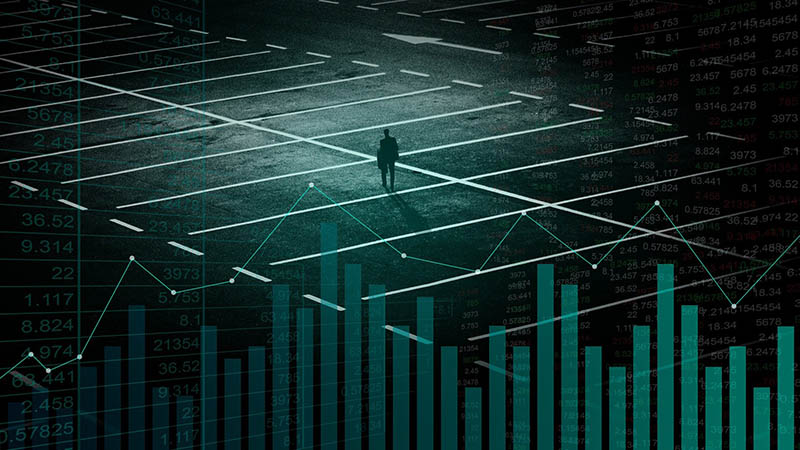- Jan 2, 2022
- ABBC admin
- ABBC News, Business Reports
- 0 Comments
Decoding the World Bank Autumn 2021 Report related to Algeria

The World Bank report for Autumn 2021, which advocates an acceleration of the pace of reforms to protect the Algerian economy considers that Algeria’s economic outlook is in “fragile recovery” mode for 2021. It highlights, in particular, that in 2020, a double shock was added to the country’s economic difficulties caused both by the Covid-19 pandemic and a consequent drop in revenues from hydrocarbons. This report insists that the temporary drop in international oil prices has deteriorated the budget balance, the availability of bank liquidity and the external balance, despite the depreciation of the Algerian Dinar.
In addition, the World Bank diagnoses that: “The overall budget deficit widened considerably in 2020, against a backdrop of sharp decline in oil and tax revenues, and increased budget spending. Bank liquidity has decreased and credit growth has slowed despite strong monetary easing policies on the part of the Algerian authorities, under the effect of the fall in external revenues, the mobilization of bank deposits to finance the deficit overall budget and withdrawal of bank savings by individuals. External financing needs have increased as a result of the widening current account deficit. Imports of equipment and inputs into national production have declined considerably with the continuation of import reduction policies aimed at protecting foreign exchange reserves, which fell by the end of 2020 to around 12.8 months of imports of goods and services. The authors of the report stress that the sustainability of the “fragile recovery” will depend on the acceleration of reforms to promote private sector growth and restore macroeconomic balances.
The World Bank considers that the main sources of risk for the economic outlook are the deterioration of the health situation, the resumption of large-scale social mobilization, less than expected foreign exchange earnings and an insufficient response from the private sector to the program of reforms. However, the World Bank advises through the report that: “As the increase in public spending in 2021 is expected to be short-lived, and that foreign exchange reserves now cover less than a year of imports, the acceleration of reforms aimed at encouraging the development of the private sector will be essential to drive Algeria’s structural transformation towards its independence from hydrocarbon revenues, and for it to embark on the path of sustainable and inclusive economic growth.”
According to observers and to our analysis, faced with the major challenge of gradually recovering global stability (economic and political) and moving the country into a new Era, the President of the Republic, elected by universal suffrage on 12 December 2019, set up a roadmap based on five concomitant work axes, namely:
- Engage in inclusive dialogue to achieve socio-political stability;
- Consolidate institutional stability and avoid structural collapse;
- Moralize politico-economic life through a relentless fight against all financial embezzlement;
- Relaunching economic development and growth which has been stuck since the collapse of oil price;
- Implement a social market economy through economic diversification that creates wealth outside of hydrocarbons.
The socio-political situation, the contraction in oil revenues, the high expectations of the population mean that the Executive has the obligation to succeed in the post-Covid-19 economic recovery without moving towards external debt to the harsh conditionalities of the International Monetary Fund (IMF ) as was clearly stated by the President of the Republic. As a result, it is the management of an ad hoc situation with three components: financial, health, water / food which were presented in the Government Action Plan adopted in Autumn 2021
by both the Upper and the Lower House parliamentarians.
From the analysis of the Government’s Action Plan, a roadmap emerges that devotes its priorities to sustainable development in accordance with Algeria’s commitments to the SDG platform of the United Nations system for the anchoring of Algeria to a new Era. This revolves around:
- A new model and mode of governance marked by rigor, transparency and moralization of public and economic life, as well as the modernization of the State (institutional shift)
- The pursuit of national defense and security efforts in terms of modernization and professionalization
- A new economic orientation based on economic diversification, the promotion of industry, entrepreneurship and new alternative wealth for a resilient, inclusive and united economic development (Foundation of a social market economy close to the Adenauer model)
- Reform and modernization of the banking and financial system (2nd generation economic reform: microeconomic)
- Budgetary tax reforms to ensure more efficient management of public finances (managerial pragmatism)
- Improving the business climate by facilitating the creation of businesses and access to land, bank loans and quality public services (De-demonize private enterprise and FDI)
- Strengthen the social security system in terms of efficiency and equity with particular attention to vulnerable populations (Social Justice)
- Strengthening human capital through improving the quality of teaching, scientific research and innovation through the development of skills and the training / employability match (Promote skills and elites)
- Social development for a quality living environment (Improvement of living conditions).
Even if the World Bank Report unspokenly advocates external debt, undoubtedly, neither this issue nor the questioning of the fundamental principles linked to support for housing and the most deprived social categories will be on the agenda of the governing elite.
By Dr. Arslan CHIKHAOUI, expert in geopolitics
Chairman of the Consultancy & Studies Center www.nordsudventures.com
